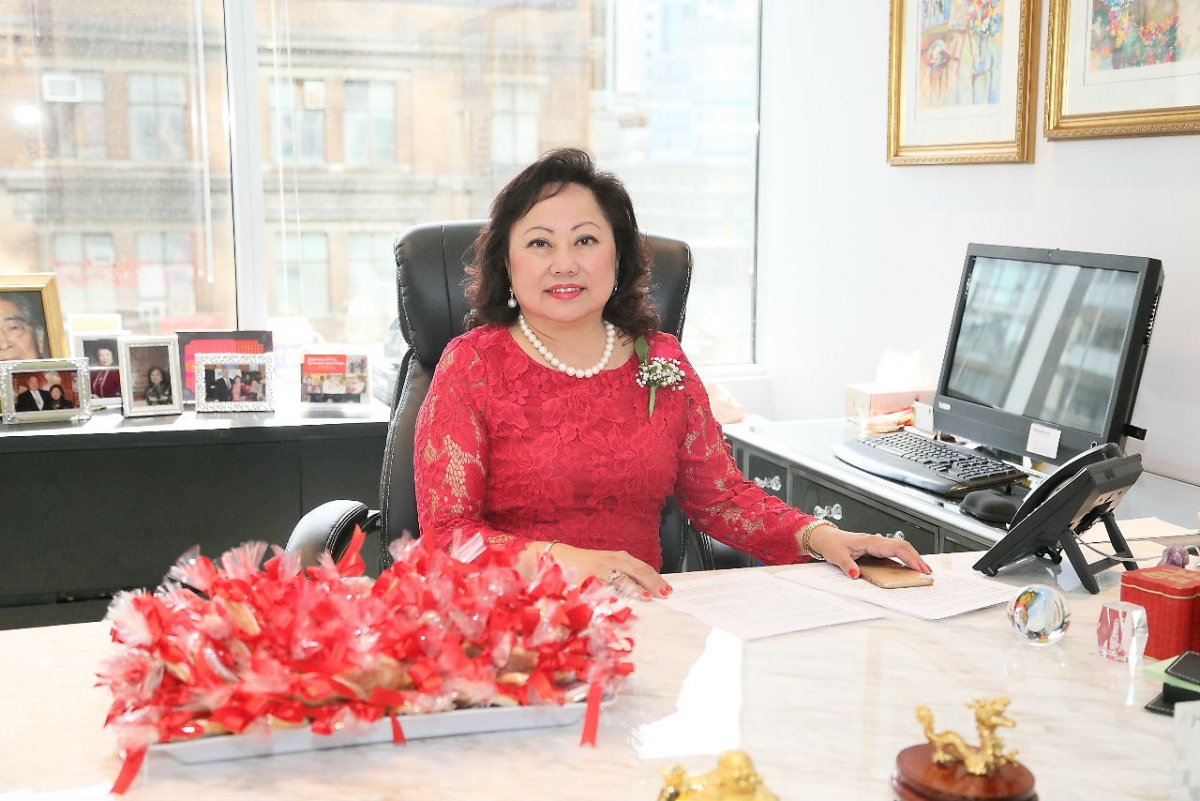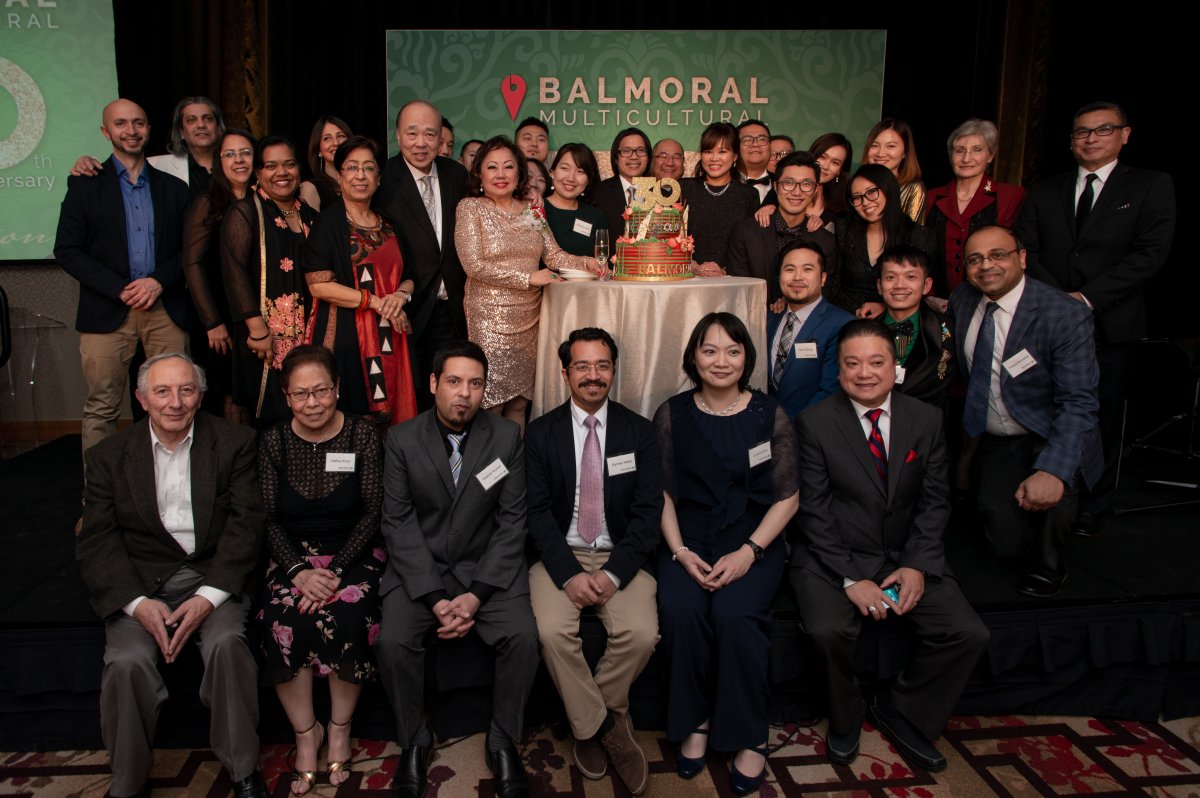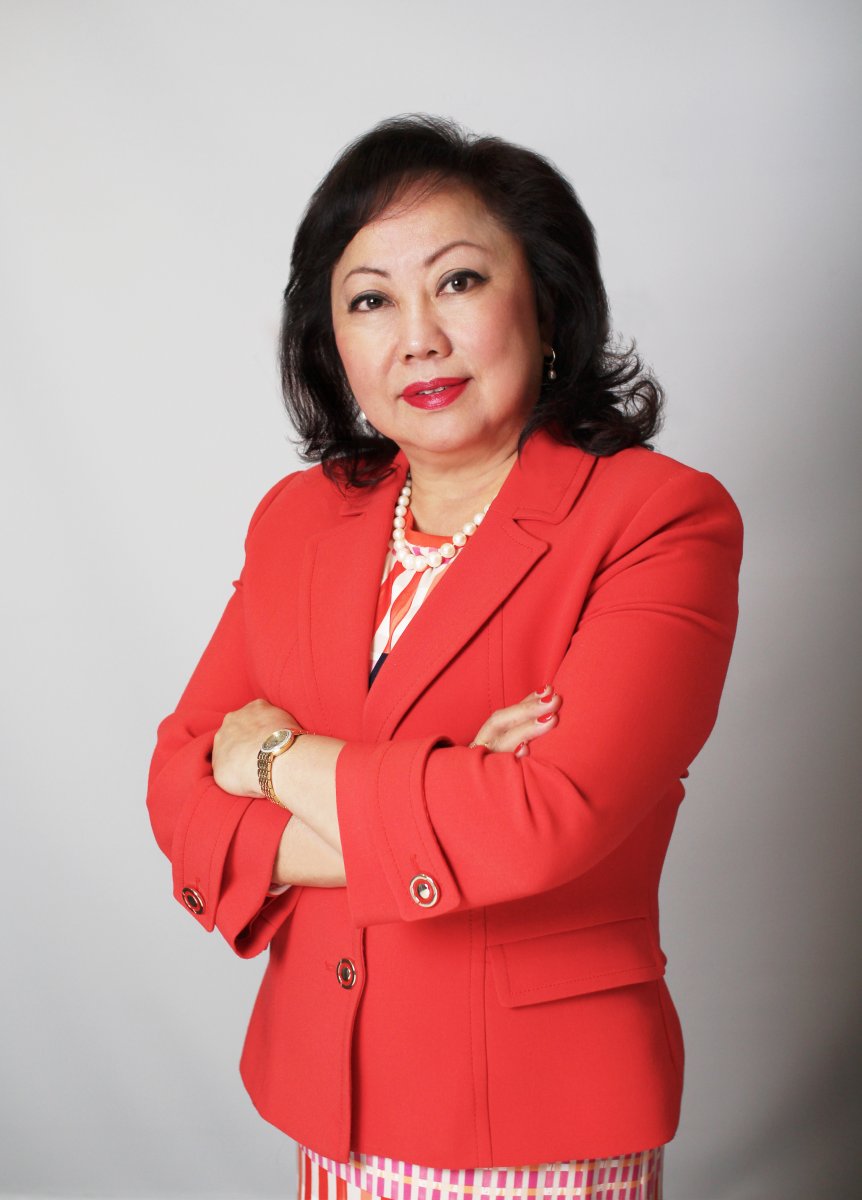Recently inducted into the Canadian Marketing Hall of Fame, Sharifa Khan looks back at her career and the creation of multicultural marketing.
[vc_row][vc_column][vc_column_text]Sharifa Khan, CEO and Founder of Balmoral Marketing, envisioned and established the industry of multicultural marketing as we know it today. For that and many other reasons, she was recently inducted into the Canadian Marketing Hall of Legends, making her the first multicultural marketer to be given this achievement.
To where she is today, Khan had to fight many battles, breaking countless glass ceilings throughout her career.
“I’m very obstinate and I am very passionate, so I stayed the course. I wouldn’t let the thinking that as I am a woman of color, a BIPOC woman, I would be unsuccessful. If I think that way I would have given up a long time ago,” she said.
Thirty years ago, as Khan observed the growth in numbers of immigrants coming to Canada, she knew the marketing industry was missing the mark when targeting their audiences. Ethnic communities were growing but no one was taking the time and opportunities to build stronger bridges with them.
Then came Khan and her vision of multicultural marketing.
She first introduced the idea of multicultural marketing into the firm she was working for at the time, and eventually took matters into her own hands and founded her own enterprise, Balmoral Marketing.
“The population changes, the trends have changed, there are many of us here that are contributing to society. I want to prove that the brands can no longer ignore these diverse communities. That’s how I started and why I started,” Khan explains.
Now, 30 years later, Khan is proud to see that multicultural marketing has in fact broken barriers and pushed companies and governments to connect with diverse communities.
For this week’s Women Who Lead, Bay Street Bull talked to Sharifa Khan, Founder and CEO of Balmoral Marketing, about breaking barriers and making a difference in the world as a BIPOC Canadian woman and pioneer of multicultural marketing.
[vc_text_separator title=”Q&A” color=”turquoise” style=”double” border_width=”2″ accent_color=”#c2952c”]
Can you tell me more about what multicultural marketing is and what made you want to start that industry?
Multicultural marketing is an integrated communication discipline that helps corporate companies to connect and engage with Canada’s diverse community. You have seen the changing landscape of Canada with immigrants coming in, particularly the influx in the past 25 years where Canada has increased the quota of immigrants for a very valid reason. So, multicultural marketing is helping these corporations, or the government, connect with these communities using a cultural lens. A lens looking at where they are, what’s their behavior, and what’s their consumption power. It’s helping them market to a niche group. It’s no more different than if you’re marketing advertising campaigns that are for millennials or for mothers with young children or LGBTQ communities. So it’s a segment marketing discipline, that’s when I started multicultural marketing way back over 30 years ago.
Interesting. So what made you want to start that industry? I know it’s not an industry that was developed before you started it. You really brought that to the market.
People have called me the pioneer of this industry. What made me start? When I first came to Canada as a young woman, a young immigrant woman, I started at a PR and marketing firm, as a PR account assistant. I stayed there for 11 years, climbing the ladder, and becoming the Media Director Consultant and eventually shareholder at that company. I found that being an immigrant woman myself, I’m cognizant of the growth of the population of immigrants coming in. At that time, the company I worked with was not speaking to these groups and there was huge potential. They hadn’t gotten their eyes on the trends because they were just focusing on the mass market and corporations that are targeting just the mainstream, so it was negligible to them. However, I convinced my superiors that it was time for that, and I showed them some of the immigration numbers and what the government was doing at the time.
I persuaded my superiors at that time and said that we should really start looking at these [immigration] trends and their potential. So I started working with our existing clients and I started diverse marketing, the multicultural marketing division within that company. So that’s how I started with that, and I gained a lot of experience.
So then it was time for me to make my own company because that particular firm was sold. I said, well, I’ve got a few years of multicultural marketing and I’ve tested the market, it was time for me to start my own company. So it was in 1989 that I started my own company.
I also felt that I wanted to prove to the Canadian corporate market that the immigrant market matters and that it mattered then, and it matters now. And there is also so much change now within the landscape. They really have to have their eyes on what is going on. The population changes, the trends have changed, there are many of us here that are contributing to society. I want to prove that the brands can no longer ignore these diverse communities. That’s how I started and why I started.
I think it’s amazing that you really started that industry and that it picked up so much, and it did so much for so many different communities.
I’m so glad that many corporations finally see the light, and of course, they can no longer ignore it because in the last two or three censuses, the statistics show the growth of these contributing immigrants. Of course, Canada has its criteria, they know exactly the type of immigrants that they want. They have lacked skilled workers because a lot of mainstream Canadians that are born here no longer want to be in the labor market. They don’t want to be in the trade anymore. So we have to get immigrants that are well versed and just step up, come in and pick up the job, and want people that are professionals, that are accountants, that are in finance, and in particular, we want entrepreneurs, and immediately we have that kind of skill sets and experience that can open up business start business.
In Vancouver and Toronto, the flourishing of business by immigrants, everywhere you look around, it’s not just a white [people] that are in business. The contributing factor of immigrants coming here is driving the economy tremendously. If marketers are smart and look at it and put the pause on it and watch the trends all the time, then that’s where they would be able to see what is important and what is important to them to be able to gain market share.
So did you find that yourself, as an immigrant and as a BIPOC woman, it was hard to get into that industry? To get into the business world in general and to break through as an entrepreneur?
Yes. At that time, even for women that are in marketing or PR, you could count them with one hand. Most of them were men in the industry. So yes, initially when I walked into the room, I would find all white gentleman. And if there was a woman, it wouldn’t be a woman of my color or that would look like me.
So you have to be very confident and passionate about what you do, because you would have to present a case that is for their benefits, for their growth, for their gaining market share. And you have to give them evidence, data insights as to why they should not be sitting on the fence. And many of them want to do it, but they have been sitting on the fence for a while. So there’s a lot of proving that has to be done and a lot of education. I’m very obstinate and I am very passionate, so I stayed the course. I wouldn’t let the thinking that as I am a woman of color, a BIPOC woman, I would be unsuccessful. If I think that way I would have given up a long time ago.
As long as you go in prepared with all the data and insights and all the rationale as to what will be beneficial for them improves the case, this is always successful, not every time, but there will be somebody that will say, oh, she makes sense, let’s start working on it, look into what are some of the products? What are some of the services that should be marketed that will actually be appealing to these immigrants?


Of course. We’ve come a long way, but not far enough and I think that’s why with multicultural marketing, it’s great because you’re already breaking some of these barriers by introducing a whole new idea and seeing the potential of it.
Oh yeah, definitely. A lot of people say, after 30 years, do you think that you have completely achieved what you want to do? I say, I’m glad I’ve done what I had done, but there’s still a way to go. I would like to have multicultural marketing be at the table, at the beginning of any kind of campaign. It should really not be the other thing that “Oh, by the way, it’s good to do it.” No, it’s important, it’s crucial.
Now that you got inducted into the Canadian Marketing Hall of Legends for starting multicultural marketing and so many other achievements, what does that mean to you? What kind of legacy do you hope to leave for other BIPOC and immigrant Canadians to follow?
First of all, I’m very honoured and humbled to be recognized for this induction of AMA Canadian Marketing Hall of Legends. The most important thing is that I think it shines a light on multicultural marketing because I’m the first one that is being inducted into this genre. I’m very, very happy and ecstatic about that. And also at the same time, I would like to say to young people that if you are passionate about what you do if you’re not timid, go out there and learn how to network and believe in yourself, you can do it and don’t let any naysayers say that you can’t do it.
I’m the first woman president of Toronto China’s Business Association, the first ethnic VP of the Canadian Club, so I was very fortunate that I was able to break these glass ceilings. But it’s not easy for young people, it’s by being truly obstinate, staying the course, pressing passion, and I was very lucky that I had mentors that guided me and helped me. That’s why I’m a mentor myself, and to new immigrants, talking to young people, to get them guidance as to what should be their career path, what they should do, and how to get hired. In my company, I have hired a lot of young, new immigrants who are looking for their first job, their first Canadian experience.
My legacy is that if I can do it, they can do it. And of course, you should not give up easily because you’re not able to reach the goal, just stay the course. I’ve always been told throughout the years, by my friends and people in the industry, “You’re like a fearless fly”. And of course, I was really young and I look back at times and I say “Did I do that?”
It’s also my peers, my parents, that have always encouraged me and have always said that if you work hard, you will get what you want. And I think that passed on to me so if I ever ponder and have fear, I would make sure I move my thoughts somewhere else because fear would only make you doubt yourself and fear would halt you from your path. So I think for young people, you gotta really be passionate, go out there and network. Particularly, a lot of new immigrants from different nationalities are afraid to reach out to the mainstream, but you can’t because if you don’t reach out to the mainstream, they don’t understand you either. So you have to go out there and initiate networking and go into communities. It doesn’t matter, mainstream or ethnic communities, just meet as many people as you want. I started knocking at doors. I was just knocking on doors, and I think it paid off.
If you had one really big piece of advice that you could give to a new immigrant or a BIPOC Canadian woman wanting to go into the business and being an entrepreneur, you would say that your biggest advice is really to go for it?
Yes. That’s my trifecta, most importantly you just have to be very passionate about it. If you’re not passionate and you’re just doing it because it’s a job, because it’s just a career, that’s the number one barrier, if you’re not open to going out there and meeting people and making as many contacts as you can. I’m very lucky throughout the years, I’ve made a lot of networking contacts and friends who are really good supporters for my career number one, and also ended up being referrals for businesses. I didn’t make those contacts with this in mind, but it’s just that the more people you meet, the more experience you learn from them and widen your horizon. You have to be able to stay the course, you know, if you’re committed to it, you just have to stay the course because if not, if you step off it, then you would have failed very, very easily. And believe in yourself, if other people can do it, you can do it too.
That’s my trifecta of what we should do, immigrants should do. It doesn’t matter if you’re a man or woman either, because you should never say, “Oh I am a woman, I might not be able to do this.” This is nonsense. Look at how it is today. Have we reached a hundred percent equality? No, but it is so much better now for women. If you look at the marketing industry, just look at how many CMOs right now are women. Look at how many executives of the top Fortune 500 companies are women. Have we reached 50/50? No, but it certainly has come a long way.
My next question is more towards Balmoral and the future of multicultural marketing. How would you hope that it develops and when you think of 10 years from now, where do you hope the company is? And where do you hope the industry of multicultural marketing, in general, is going?
A lot of companies and governments are paying attention to communicating and connecting with diverse communities without a doubt. They are also allocating a budget to talk to them in campaigns. But I think there’s still quite a way to go and even after doing it for 30 years, I think that will gradually change. I think with incidents in the current year of Black Lives Matters and Asian hate crimes, it’s also bringing these communities and how vulnerable they can be to the world stage. All these changes in the world also bring to light inclusivity which is very important. They’re sad incidents without a doubt, but it shines a light that we have to embrace everybody. By embracing everybody, it means that you have to speak to them. You have to connect with them in more ways than one. It could be in a sense of going into the competitors for corporate marketers to sponsor their event and supporting the causes.
But I think there’s still a bit of a way to go because nothing is perfect in this world, but I would like to see that multicultural marketing should not be something, “oh, it’s nice to do” and check it off a box. I think that it should actually not be part of the box—it should just be done. And it should be done in a sense that’s not forced. It should be at the table. And I hope someday it will be the case. At the same time, I hope that all the marketers will join together and say that this is something everybody should be doing because, at the end of the day, it is going to be beneficial for all corporations, in more ways than one, not to mention increasing their growth and increasing their revenue.
As far as my company, I built the foundation, and also at the same time, I have invested in my employees and senior members. So I’m confident that they understand my goals and missions for the company. So I think that my goal for my company is for them to carry on what I’ve done, carry on the legacy that I’ve done, and also with the same passion.


To leave you with one last question, who is a woman who leads in your life? Who is a woman who you’ve been inspired by and who you look up to and who’s led you throughout your career?
A woman that inspired me as I was growing up was my mother. My mother was a very determined woman. Even though she didn’t have higher education, she’s a self-made woman who’s very determined about what she wants out of life and never gives up. I learned that from her, that if you want to have something you have to stay the course. I can say she’s the first woman that I saw as my role model.
Another woman is Adrienne Clarkson. She’s the first Asian woman to be prominent within the communication and journalist world. I can’t imagine how difficult that was and how she had to prove herself in the field of journalism when there were only a handful of women that were in the industry.
Also, Vivienne Poy, another Asian woman who has always practiced inclusivity and diversity throughout her career and was also the first Canadian senator of Asian descent.
And I do also admire Oprah Winfrey, because she came from very humble beginnings for her to be able to achieve what she achieved. And my last one, is Michelle Obama. As the First Lady, she gave up her own really good career to support her husband. And she also supported a lot of causes that were good for Americans, like, education for the disenfranchised youth and providing children with breakfast, so that they would have a good start during the day.
There are people that are within Canada, and women on the world stage, that I think they’re just marvelous women.
[/vc_column_text][/vc_column][/vc_row][vc_row][vc_column][vc_separator color=”turquoise”][/vc_column][/vc_row]
[yikes-mailchimp form=”1″ title=”1″ submit=”SUBSCRIBE”]








